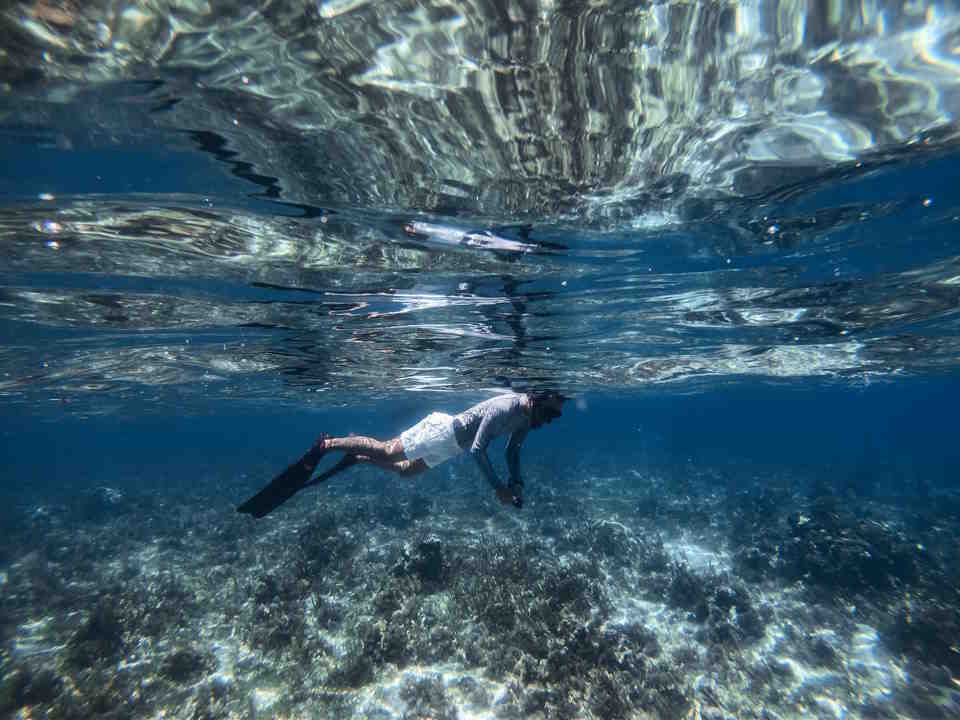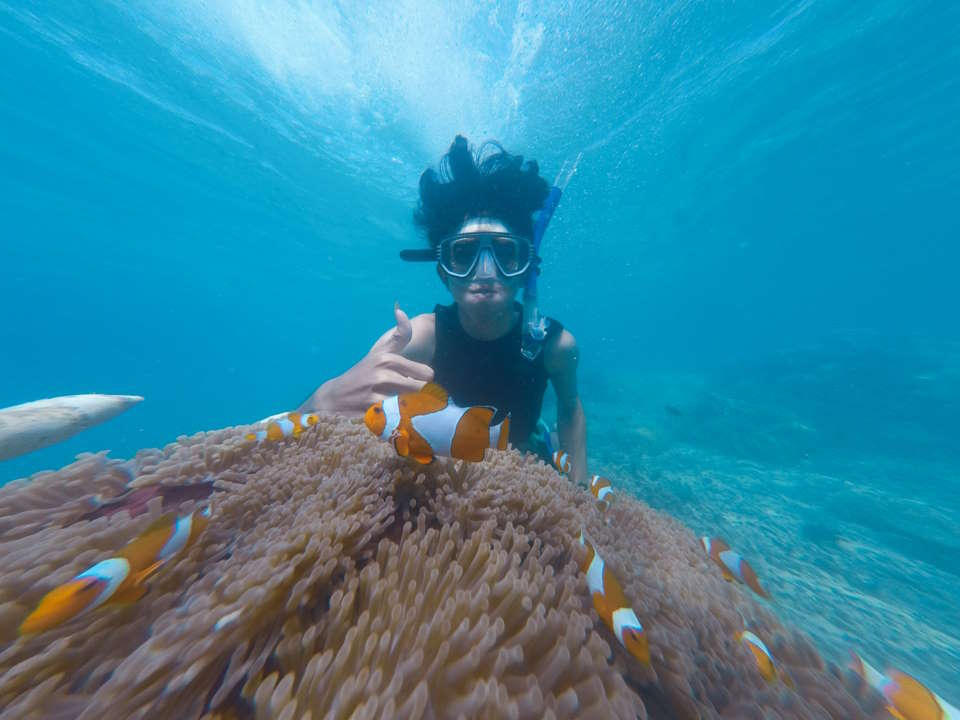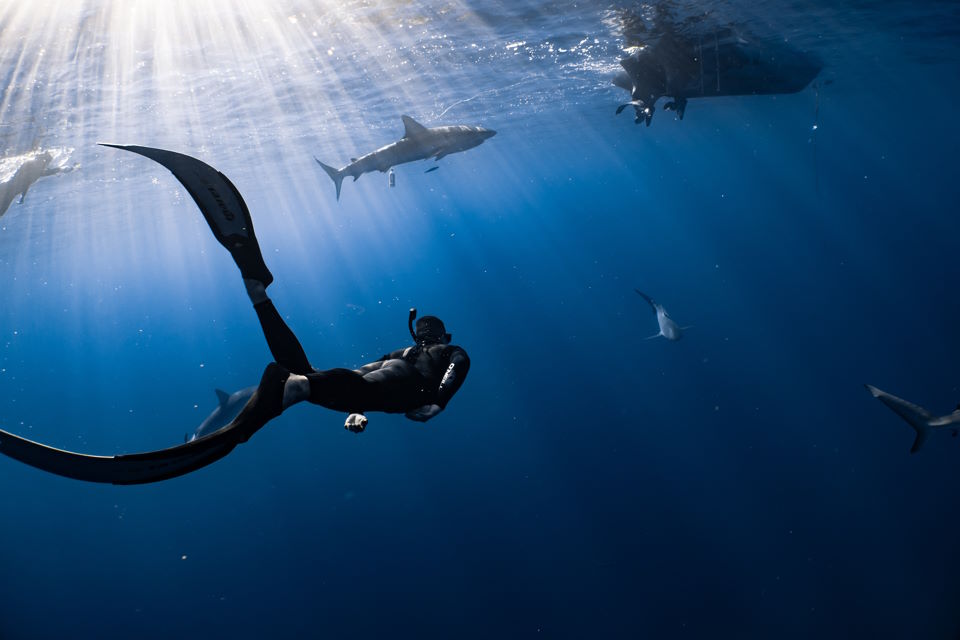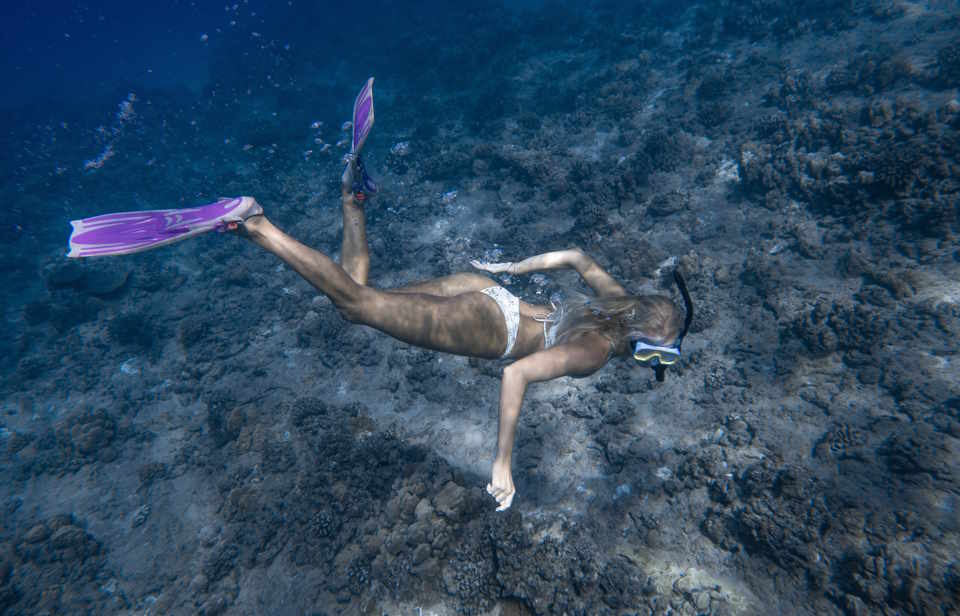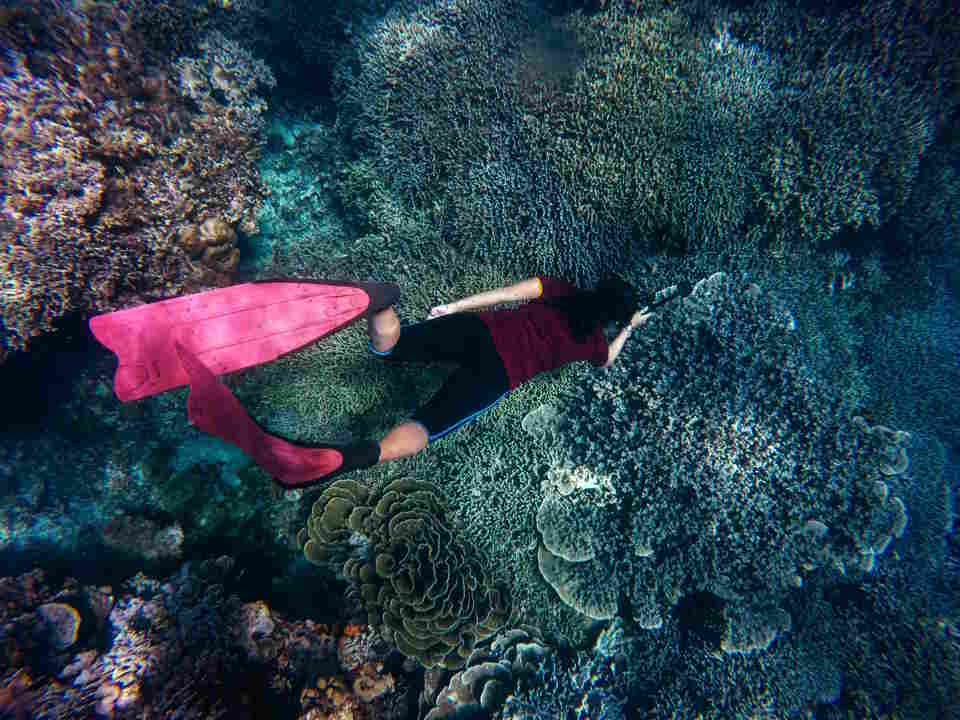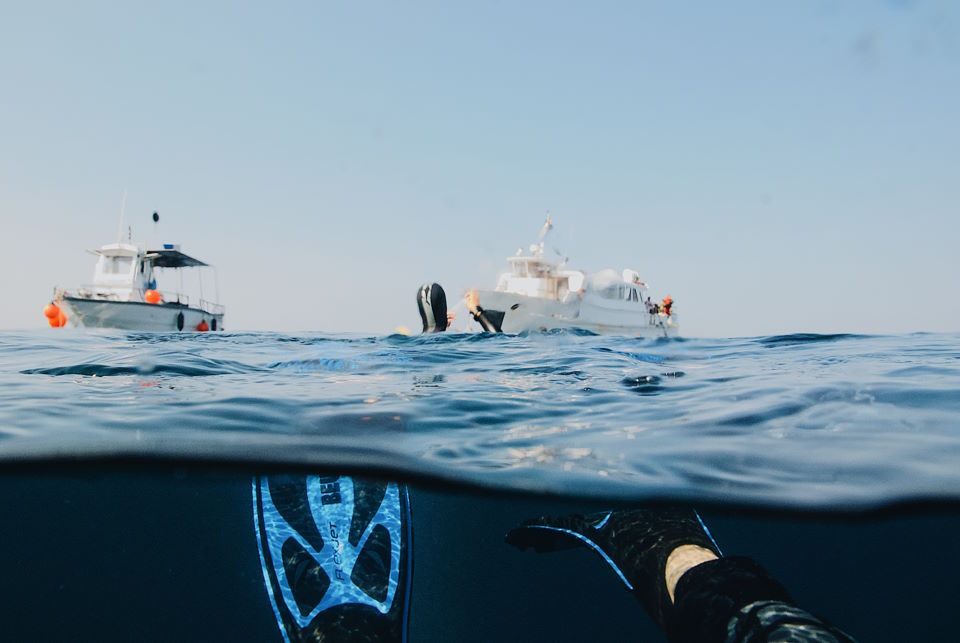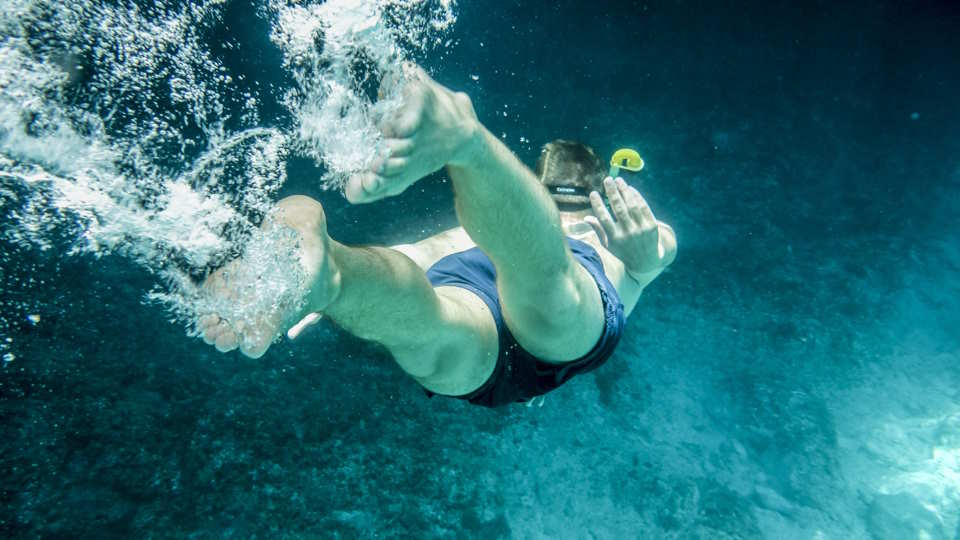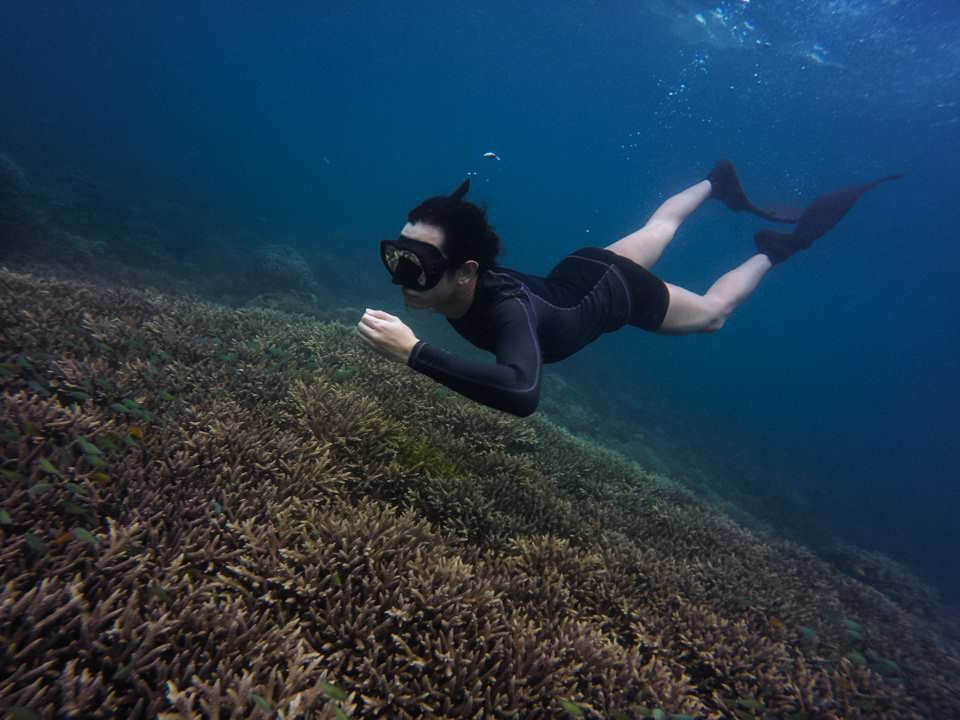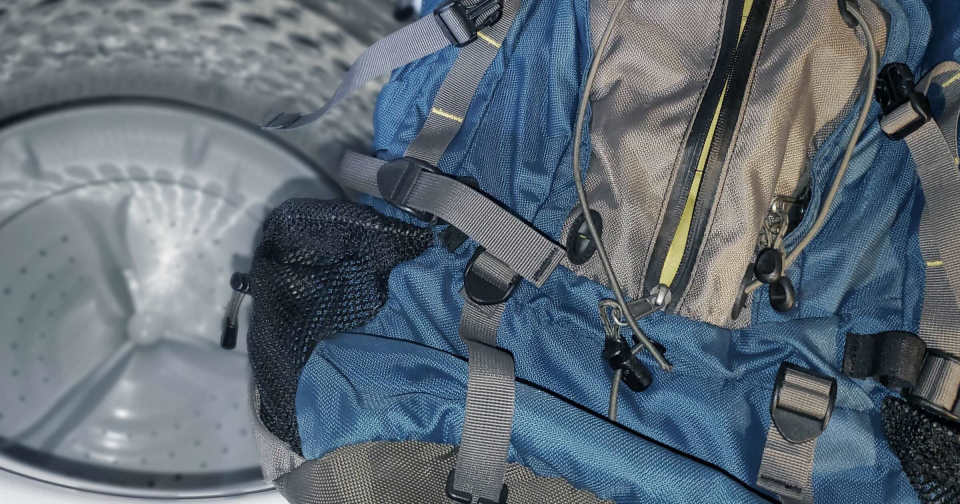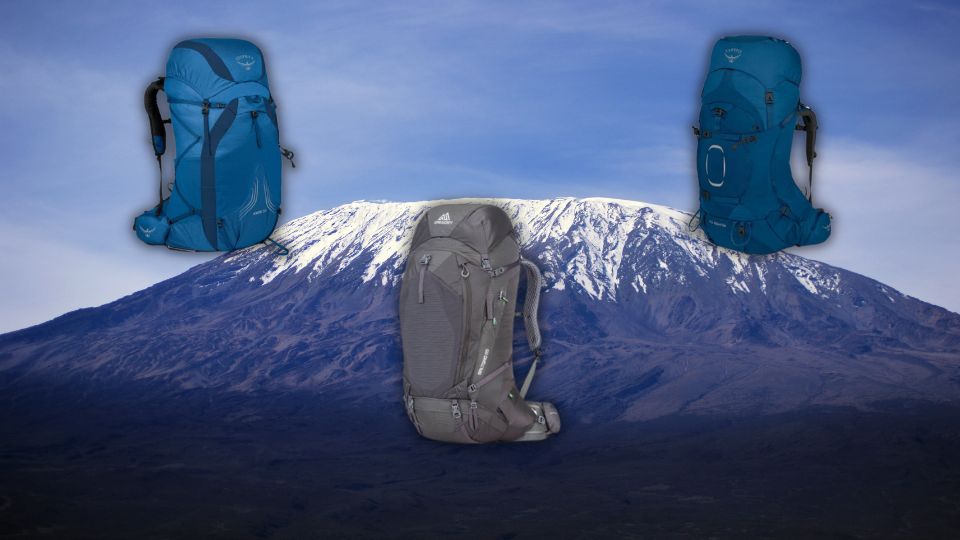Snorkeling is a fun and exciting way to explore the underwater world. However, for beginners, snorkeling can seem daunting and even scary. Many questions may come to mind such as, “Do I need to be a strong swimmer to snorkel?” or “Do I need to hold my breath the whole time?” We will be addressing the common concerns and questions that beginners have about snorkeling. By the end of this post, you’ll have a better understanding of what to expect and how to make your snorkeling experience enjoyable and safe. So, let’s dive in!
Introduction
Snorkeling is a popular water activity that allows you to explore the beauty of the underwater world up close. But if you’ve never tried it before, you might wonder if it’s hard to do. The answer is: it depends. Snorkeling can be easy or challenging, depending on various factors.
Your swimming skills, physical condition, and comfort level in the water can affect how hard snorkeling is for you. For example, if you’re a strong swimmer and feel confident in the water, you’re likely to find snorkeling easier than someone who has never been in the ocean before.
Additionally, the conditions of the water can also impact how hard or easy snorkeling is. Calm, clear waters with good visibility make for ideal snorkeling conditions, while rough, murky waters can make it more difficult to see and navigate.
- Factors that can affect how hard snorkeling is:
- Swimming skills
- Physical condition and stamina
- Comfort level in the water
- Water conditions (waves, currents, visibility)
However, even if you’re not a strong swimmer and feel nervous in the water, you can still learn to snorkel. Many snorkeling tours and classes cater to beginners and offer instruction, equipment rental, and guided tours to help you feel more comfortable in the water.
Is Snorkeling Scary for Non-swimmers?
When it comes to snorkeling, one of the common concerns for non-swimmers is whether or not it’s scary. For some, being in the water can be a daunting experience, making it a natural assumption that snorkeling would be too. However, with the right preparation, snorkeling can be an enjoyable and safe activity for non-swimmers.
Firstly, it’s important to note that snorkeling does not require expert swimming skills. In fact, many snorkeling tours and programs are designed for beginners and non-swimmers. Participants are often provided with life jackets or flotation devices, making it easier to stay afloat and allowing for an easier time to adjust to being in the water.
- Tip: Look for snorkeling programs that cater to non-swimmers, and don’t be afraid to ask for assistance or accommodations to make the experience more comfortable for you.
Another way to ease fears is to practice breathing through the snorkel beforehand. Many people feel claustrophobic or panicked when breathing through a snorkel for the first time, but practicing on land can help get you comfortable. Find a quiet spot at home or on the beach, and practice putting your face in the water while using the snorkel. Slowly inhale and exhale, getting used to the sensation of breathing through the tube.
- Tip: When practicing snorkel breathing, take slow, deep breaths to help regulate your breathing and calm any anxiety you may feel.
Lastly, one of the most effective ways to combat fears around snorkeling is to have a knowledgeable and experienced guide. Having someone who can educate you on the equipment, guide you through the water, and provide assistance and support throughout can help ease any anxieties. Knowing that you have someone to rely on and trust can make all the difference in overcoming fears around snorkeling.
How Do You Breathe in a Snorkel?
Snorkeling is a fun activity that allows us to explore the underwater world without having to scuba dive. However, for beginners, it might seem a bit challenging, especially when it comes to breathing through a snorkel.
What is a snorkel?
A snorkel is a long tube that allows us to breathe air from the surface while our face is underwater. The tube has a mouthpiece that fits in our mouth, and the other end is above the water surface. Snorkels can be made of different materials such as plastic, silicone, or rubber.
How to breathe in a snorkel?
- First, secure the snorkel to your mask strap, ensuring that it is not too loose or too tight.
- Place the mouthpiece in your mouth and bite down gently, creating a seal around the mouthpiece. Make sure that your lips cover the mouthpiece and not just your teeth.
- Breathe slowly and deeply through your mouth, and exhale through your nose. This will ensure that you don’t swallow water.
- If water enters the snorkel, exhale hard through your mouth, and it will clear the water from the snorkel.
Tips to make breathing in a snorkel easier
- Practice breathing through the snorkel before getting into the water, so you get used to the sensation.
- Keep your head straight and level while swimming, as tilting your head can cause water to enter the snorkel.
- Use fins to move through the water easily and reduce the amount of effort required to breathe through the snorkel.
- If you feel uncomfortable while breathing, take a break and remove the snorkel from your mouth. Remember that snorkeling should be enjoyable, and there’s no need to push yourself beyond your comfort level.
By following these tips and practicing regularly, you will quickly get the hang of breathing through a snorkel, and snorkeling will become a fun and exciting activity for you.
Should I Be Able to Swim for Snorkeling?
When planning for a snorkeling trip, one of the main concerns is whether or not you need to be a strong swimmer. The truth is, snorkeling doesn’t require an advanced level of swimming, but it is important to have some basic swimming skills before jumping into the water.
First and foremost, you should feel comfortable in the water and be able to keep yourself afloat without assistance. This means being able to tread water and stay calm in the open water. It’s also important to know some basic swimming strokes, such as the front crawl and backstroke, in case you need to swim back to the boat or shore.
- If you’re new to snorkeling, it’s a good idea to start in shallow waters where you can stand up if needed.
- It’s also important to wear a properly fitting snorkel mask and fins, as they can significantly reduce the effort required to swim and allow you to conserve energy.
- Moreover, be sure to use a snorkel vest or inflatable noodle for additional buoyancy and support.
It’s worth noting, however, that being a strong swimmer doesn’t necessarily mean you’ll have a better snorkeling experience. In fact, many experienced snorkelers rely more on their buoyancy control and breath control than their swimming abilities.
| Pros of being a strong swimmer for snorkeling: | Cons of not being a strong swimmer for snorkeling: |
|---|---|
| Ability to swim against currents and reach more remote or deeper snorkeling spots | Increased risk of fatigue and potential difficulty swimming back to the boat or shore |
| Increased confidence in the water, allowing for a more enjoyable snorkeling experience | Limited ability to venture out further from shore or boat |
| Ability to navigate and explore underwater terrain with ease | Potential to panic or feel uncomfortable in open water |
Can Beginner Swimmers Snorkel?
Many people think that snorkeling is an activity best left to experienced swimmers. However, this is simply not true. Beginner swimmers can absolutely snorkel and enjoy all the wonders of the underwater world.
One important thing to remember is that snorkeling is not the same as swimming. Snorkeling is more about floating on the surface of the water, looking down and observing the marine life beneath you. You do not have to exert a lot of energy to snorkel, and in fact, it is best if you conserve your energy so that you can stay in the water longer and enjoy the experience.
- However, it is still important to know how to swim.
- You should be comfortable in the water and be able to tread water for a few minutes.
- Swimming skills will help you if you encounter any problems in the water, such as strong currents or waves.
Another thing to keep in mind is that you should always wear a life vest or a snorkel vest when snorkeling, especially if you are a beginner swimmer. This will give you extra buoyancy and help you feel more confident in the water.
| PROS | CONS |
|---|---|
|
|
Do You Have to Hold Your Breath When Snorkeling?
Snorkeling is a popular activity enjoyed by people of all ages and skill levels. If you’re new to snorkeling, you might be wondering if you have to hold your breath while underwater. The short answer is no, you don’t have to hold your breath when snorkeling. In fact, holding your breath can be dangerous and can lead to serious health risks such as pulmonary barotrauma or shallow water blackout.
When you’re snorkeling, it’s important to breathe normally through your mouth or nose while you’re underwater. To do this, you’ll wear a snorkel, which is a tube that extends above the water’s surface and allows you to breathe in air from above. Some snorkels also have valves that make it easier to exhale while you’re underwater.
- When you’re snorkeling, remember to:
- Breathe normally through your mouth or nose
- Use a snorkel to breathe in air from above
- Avoid holding your breath while underwater
By breathing normally while you’re underwater, you’ll be able to stay relaxed and enjoy the beauty of the underwater world without worrying about running out of air or putting yourself at risk for health problems. So, whether you’re snorkeling in shallow waters or exploring deeper reefs, remember to take deep breaths and enjoy the experience.
How Do You Snorkel Without Panicking?
If you are someone who is afraid of deep waters or doesn’t know how to swim, snorkeling can be scary. But, with proper preparation and practice, you can overcome your fear and enjoy the beautiful underwater world. We will discuss some tips and techniques on how to snorkel without panicking.
Firstly, it is important to choose the right equipment. Make sure your snorkeling mask fits properly and doesn’t leak. Test it by placing the mask on your face and inhaling through your nose. If it stays in place and doesn’t leak, it is a good fit. Additionally, use fins to help you navigate the waters and breathe more efficiently with a snorkel.
- Test your equipment ahead of time to make sure everything fits and works as it should.
- Choose a shallow and calm area to start off with.
- Practice breathing through your snorkel before diving in.
- Keep your face in the water and focus on your breathing.
- Pace yourself and take breaks when needed.
Secondly, try to relax and calm your mind. You can practice some breathing exercises before diving in, and remind yourself that snorkeling is a fun and enjoyable activity. If you feel yourself starting to panic, take a deep breath and focus on your surroundings. You can also signal to your buddy or guide to help you if needed.
| Tip | Explanation |
|---|---|
| Relax your face and jaw | This will help reduce the strain on your jaw muscles and prevent headaches. |
| Keep your snorkel straight | By keeping your snorkel vertical, it will prevent water from entering the tube. |
| Stay close to the surface | Maintain a close distance to the surface so you can easily lift your face out of the water if needed. |
Finally, consider taking a guided snorkeling tour or lesson. A professional will be able to guide you through the process and offer tips on how to improve your technique. They can also provide additional support for those who are afraid of snorkeling in deeper waters.
Remember, with proper equipment, technique, and mindset, anyone can learn how to snorkel without panicking. It’s a great way to explore the underwater world and experience the beauty of nature.

